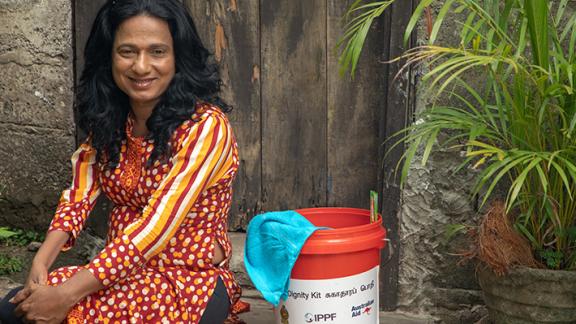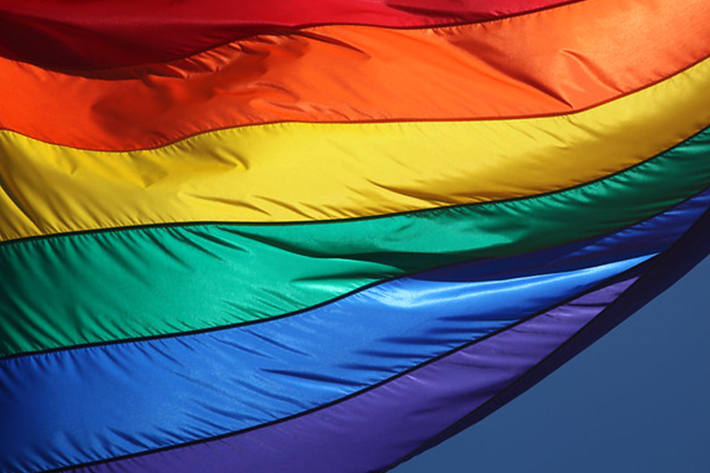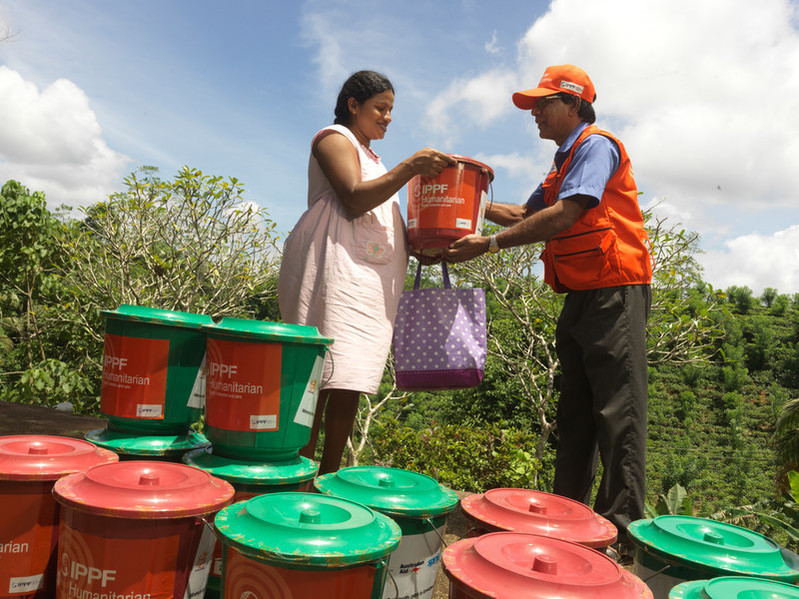Sakuni is 36-year-old transgender woman from Sri Lanka. A transgender activist, she speaks passionately about the situation facing transgender people in Sri Lanka and her work with the National Transgender Network of Sri Lanka (NTNSL).
Sakuni was born with both male and female genitalia, but as her mother and father already had four daughters, her parents decided to raise her as a boy. But, “at the age of eight or nine, I felt like I am a girl. At the age of 11 or 12 I started to be attracted to boys at school”, she says.
She ‘came out’ to her family, who accepted Sakuni for who she was. “My family didn’t hide me away when I came out as transgender, they accepted me. My father has passed away, but my sisters and mother like to come visit me and like going places with me.”
“I am happy as a transgender person because my family loves me, but the other transgender people face many problems from their family,’” she says. “They cut their hair and force them to change their clothes and cut their nails. They don’t allow them to wear makeup or shave.”
Being able to shave is an integral part of being a transgender woman. Which is why during disasters, such as the severe flooding Sri Lanka experiences on a yearly basis, it’s important for transgender people to have access to razors.
A timely idea
Just before the October 2018 floods, Sakuni had been attending training at IPPF’s Member Association, the Family Planning Association of Sri Lanka (FPASL). It was there she came up with the idea to ask for some dignity kits to distribute to the transgender community in her area.
“At that awareness program, I learnt that FPASL supports transgender people during disasters. FPASL is the only organisation that talks about transgender people. I had this idea, if I can do something for transgender people by requesting dignity kits for them, then the awareness program is completed.”
These kits include items such as underwear, sanitary napkins, soap, toothbrushes, and towels, and are intended to help restore women's dignity and increase their mobility during crisis situations. Furthermore, the buckets that contain these items can double up as water containers.
NTNSL has long-standing ties with community-based organisations in these districts and transgender persons can be considered extremely vulnerable in crises sometimes not feeling safe or not being able to enter temporary shelters. They are also sometimes being excluded from distributions given that the gender marker on their identification form does not match their gender identity and appearance. It can be difficult to access these kits, or even if they do, the items are not designed with the transgender woman in mind. FPASL had specifically designed kits to be transgender-friendly.
“I distributed the kits myself. They were hugging me, they worshipped me for distributing those kits. It was really emotional for me. When I received the kits and saw what was inside, I wanted to protect the items as a souvenir. But of course, I used them! The items included things we have never got before as a transgender person. Receiving something like this for us makes us very happy. I feel like it’s a gift for us because normally we don’t get anything from any party as a transgender person.”
Discrimination in aid
Transgender people are often unable to access humanitarian aid in emergencies due to discrimination. In Sakuni’s case, it was the lack of the right National Identification Card which prevented her and her friends from accessing aid.
“We [the transgender community] weren’t registered in this area. So we couldn’t get any other food or aid. We are transgender so we selected this area to live so we are near to each other. We can’t just go anywhere; we have to stay in certain areas. This area is good for transgender people because it’s not crowded and we are used to this area, and the people are used to us. They don’t laugh at us. But in other areas, we have problems.”
Because their ID cards didn’t match the location they were staying in, Sakuni and others were unable to receive aid. This is where most transgender persons in Sri Lanka face a huge obstacle, as their assigned gender at birth that is reflected on their National Identification Card does not match their real gender. If they queue up in the male line, the men shout at them. “So we just don’t vote”, she said.
Change is coming
In Sri Lanka, changes are coming slowly. Sakuni says that, besides changes in attitude needed in the general public, it is also important that the Government reflect the LGBTI community. “Can’t a transgender person be in the parliament to represent our community, so our voice is there? I would like to go to parliament one day for my transgender community. I would ensure all transgender people can get the National Identification Card and voting rights.”
National governments have their part to play, but the humanitarian community can do their part by incorporating transgender-friendly services in emergency responses. Last year, IPPF hosted the first ever Pride in the Humanitarian System consultation, which brought together hundreds of LGBTI+ activists to steps that can be taken in humanitarian emergencies to ensure our responses are more LGBTI+ inclusive.
The findings from this consultation were clear: understanding the needs of LGBTI+ people is critical to address the inequalities experienced during preparedness, response and recovery. Our trans-friendly dignity kits for Sakuni and her community are just a small step towards a much bigger goal.
All actors in the humanitarian system must be mutually committed, responsible, and accountable to LGBTI+ people. It is only when we work together that we will achieve a just and equal response to humanitarian crises.
when
country
Sri Lanka
Subject
Emergencies
Related Member Association
Family Planning Association of Sri Lanka










